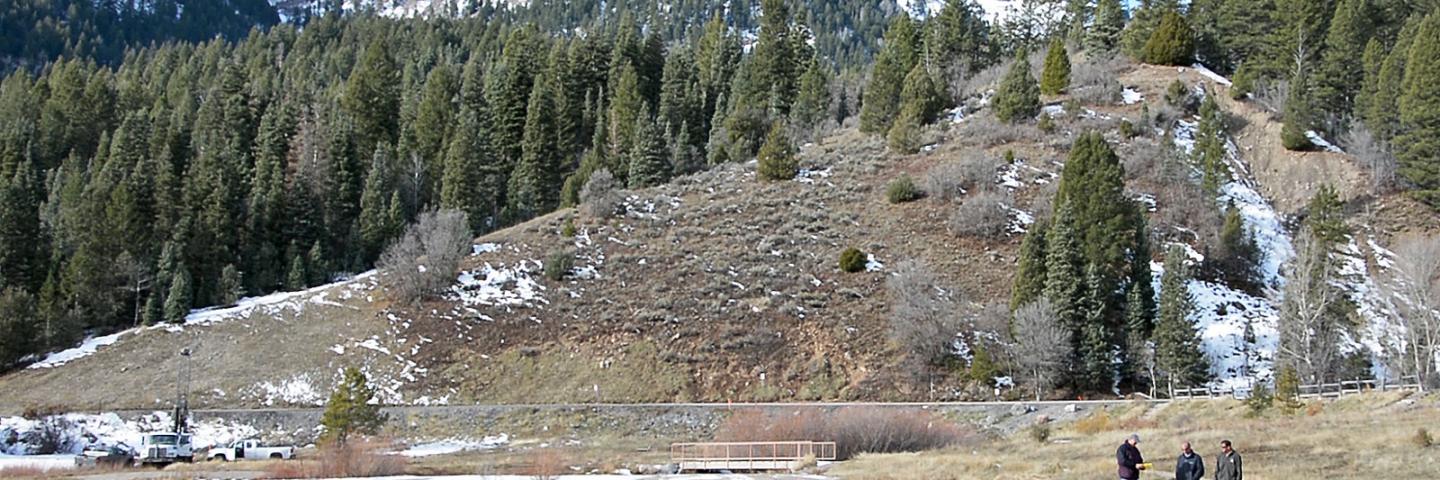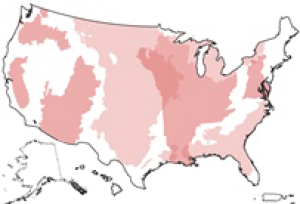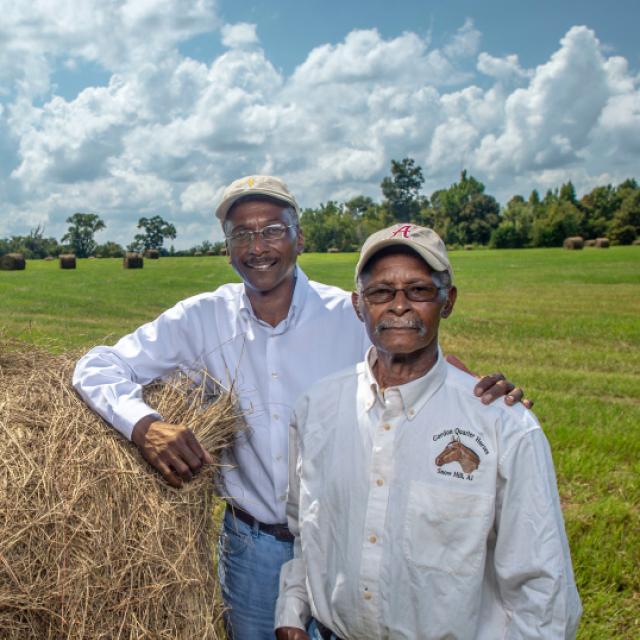Notice


The Regional Conservation Partnership Program (RCPP) is a partner-driven approach to conservation that funds solutions to natural resource challenges on agricultural land.
Through the Regional Conservation Partnership Program (RCPP), NRCS co-invests with partners in innovative, workable and cost-effective approaches to benefit farming, ranching and forest operations; local economies; and the communities and resources in a watershed or other geographic area.
Read the RCPP Fact Sheet (PDF, 542 KB).
2018 Farm Bill changes:
- RCPP is now a standalone program with its own funding—$300 million annually. Moving forward, landowners and ag producers will enter into RCPP contracts and RCPP easements.
- Enhanced Alternative Funding Arrangement provision—NRCS may award up to 15 AFA projects, which are more grant-like and rely more on partner capacity to implement conservation activities.
- Three funding pools reduced to two—the National pool was eliminated. Partners must apply to either the Critical Conservation Area (CCA) or State/Multistate funding pool.
- Emphasis on project outcomes—all RCPP projects must now develop and report on their environmental outcomes.
Latest Updates
- NRCS is currently accepting applications for the Utah Headwaters Initiative RCPP Project. This effort will work to improve habitat connectivity and water quality for native and wild fisheries in the Weber and Provo River watersheds. The deadline to apply is August 27, 2025.
Who is Eligible
Partner Eligibility: Eligible organizations interested in partnering with NRCS on conservation projects can develop applications for the RCPP competition. The lead partner for an RCPP project is the entity that submits an application, and if selected for an award is ultimately responsible for collaborating with NRCS to successfully complete an RCPP project. See the RCPP funding announcement for details about what types of organizations are eligible to apply.
Producer and Landowner Eligibility: Once NRCS selects a project and executes an RCPP agreement with a lead partner, agricultural producers may participate in an RCPP project in one of two ways. First, producers may engage with project partners and delegate a willing partner to act as their representative in working with NRCS. Second, producers seeking to carry out conservation activities consistent with a RCPP project in the project’s geographic area can apply directly to NRCS.
Land Eligibility: RCPP projects must be carried out on agricultural or nonindustrial private forest land or associated land on which NRCS determines an eligible activity would help achieve conservation benefits (i.e., improved condition of natural resources resulting from implementation of conservation activities). Eligible conservation activities may be implemented on public lands when those activities will benefit eligible lands as determined by NRCS and are included in the scope of an approved RCPP project.
RCPP Conservation Activities
RCPP projects may include a range of on-the-ground conservation activities implemented by farmers, ranchers and forest landowners. These activities include:
- Land management/land improvement/restoration practices
- Land rentals
- Entity-held easements
- United States-held easements
- Public works/watersheds
A single RCPP project application can propose to employ any combination of these eligible activity types as part of an RCPP project. For more details about eligible RCPP conservation activities, please see the RCPP funding announcement.
RCPP funding is divided evenly among two funding pools:

Critical Conservation Areas
For projects in eight geographic areas chosen by the Secretary of Agriculture. These receive 50 percent of funding. Learn more about RCPP Critical Conservation Areas.

State/Multistate
For projects in a single state or across several states. These receive 50 percent of funding.
How to Apply to RCPP
For more information on the application process visit our How to Apply page. If you are a producer or landowner interested in existing RCPP projects, please contact your local USDA service center.
Sara Saunders
Program Manager
Phone: 385-405-7261
Email: sara.saunders@usda.gov
Ready to get started?
Contact your local service center to start your application.
How to Get Assistance
Do you farm or ranch and want to make improvements to the land that you own or lease?
Natural Resources Conservation Service offers technical and financial assistance to help farmers, ranchers and forest landowners.

To get started with NRCS, we recommend you stop by your local NRCS field office. We’ll discuss your vision for your land.
NRCS provides landowners with free technical assistance, or advice, for their land. Common technical assistance includes: resource assessment, practice design and resource monitoring. Your conservation planner will help you determine if financial assistance is right for you.
We’ll walk you through the application process. To get started on applying for financial assistance, we’ll work with you:
- To fill out an AD 1026, which ensures a conservation plan is in place before lands with highly erodible soils are farmed. It also ensures that identified wetland areas are protected.
- To meet other eligibility certifications.
Once complete, we’ll work with you on the application, or CPA 1200.
Applications for most programs are accepted on a continuous basis, but they’re considered for funding in different ranking periods. Be sure to ask your local NRCS district conservationist about the deadline for the ranking period to ensure you turn in your application in time.
As part of the application process, we’ll check to see if you are eligible. To do this, you’ll need to bring:
- An official tax ID (Social Security number or an employer ID)
- A property deed or lease agreement to show you have control of the property; and
- A farm number.
If you don’t have a farm number, you can get one from USDA’s Farm Service Agency. Typically, the local FSA office is located in the same building as the local NRCS office. You only need a farm number if you’re interested in financial assistance.
NRCS will take a look at the applications and rank them according to local resource concerns, the amount of conservation benefits the work will provide and the needs of applicants. View Application Ranking Dates by State.
If you’re selected, you can choose whether to sign the contract for the work to be done.
Once you sign the contract, you’ll be provided standards and specifications for completing the practice or practices, and then you will have a specified amount of time to implement. Once the work is implemented and inspected, you’ll be paid the rate of compensation for the work if it meets NRCS standards and specifications.

